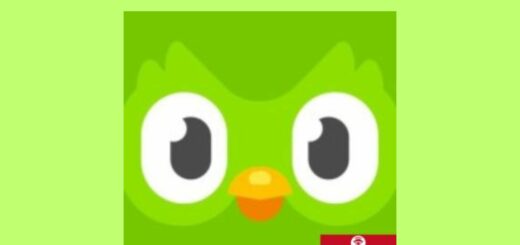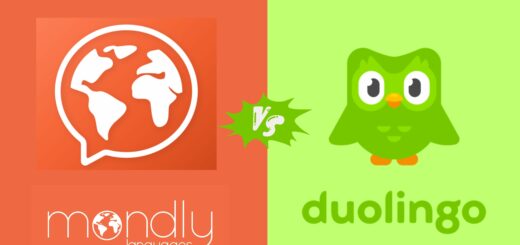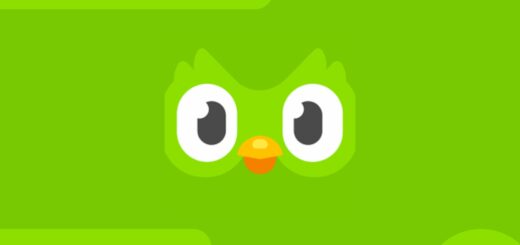Busuu vs Duolingo: Which One to Choose in 2024?
Language learning has become one of the most important things in the present world. Initially, to learn a new language you were only dependent upon the tutors and the books. But with current innovations, you also get various platforms where you can learn a new language. Such platforms which will help you to learn the language are Duolingo and Busuu. Obviously choosing the right platform is very important, and thus here we will help you to get the full comparison between Busuu vs Duolingo.
Quick Takeaways
- Here is a Short comparison between Busuu and Duolingo-
| Features | Busuu | Duolingo |
| Price | Free and then $7-14 per month | Free or $84 per year depending upon the type of plan |
| Approach | Textbook style | Gamified approach |
| Courses | 60 courses in 14 languages | 100 courses in 40 languages |
| Length of lessons | 5-10 minutes | 5 – 10 minutes |
| Speaking exercises | Detailed speaking exercises | Less speaking exercises |
| Vocabulary | Less vocabulary | More Vocabulary |
| Grammatical Explanations | More | Less |
| Number of languages | 14 | More than 40 |
However, you must read till the end so that you get a better understanding of Busuu vs Duolingo.

What is Duolingo?
Duolingo is an online language-learning platform that combines a gamified approach to help you learn the language independently. It is a platform where you may do a variety of exercises to help you learn the language. This platform also includes unique features known as Duolingo gems, leagues, XP score, etc. This platform has a gamified approach, which means that each lesson contains a variety of game-like activities. Duolingo is a community of more than 50 million users with 71 million active users every month. The reliability of the platform can be seen by the statistics of the numbers.
What is Bussu?
Bussu is another language learning platform that will help you to learn 14 different languages. It is a great platform that will also help you to learn the language with real-life examples. Busuu is called after Cameroon’s endangered language, Busuu. Busuu combines conversational elements of social learning with self-study language acquisition. It provides you with the courses at CEFR levels A1, A2, B1, B2, and C1. The study material is organised into themed categories, each based on a typical conversational scenario Lessons include vocabulary and grammar practice, pronunciation exercises, etc.
Busuu vs Duolingo: What is the difference between both of them?
Following are the key differences between the Busuu and Duolingo-
1. Languages Offered
Whenever you are learning a new language it is very important for you to understand how many languages are offered on the platform. If we talk about Duolingo there are more than 40 languages that are available on the platform. On the other hand, as discussed above there are only 14 languages available on Busuu. Duolingo platform not only offers fictional but also nonfictional languages on the platform. Of course, it is a great free platform that also focuses on less global-significant languages. Further, I have mentioned the languages that are offered on both platforms one by one-

Duolingo
- Hindi
- French
- Spanish
- German
- Japanese
- Korean
- Chinese
- Arabic
- Portuguese
- Vietnamese
- Turkish
- Dutch
- Italian
- Greek
- Swedish
- Ukrainian
- Polish
- Russian
- Latin
- Irish
- High Valyrian
- Hebrew
- Norwegian
- Indonesian
- Finnish
- Hawaiian
- Romanian
- Danish
- Welsh
- Scottish Gaelic
- Czech
- Swahili
- Haitian Creole
- Navajo (Beta)
- Hungarian
- Klingon
- Zulu Xhosa (work in progress)
- Esperanto
- Yiddish (Beta)

Busuu
- Spanish
- German
- Japanese
- Italian
- French
- English
- Dutch
- Turkish
- Russian
- Portuguese
- Chinese
- Korean
- Arabic
- Polish
2. Subscription plan
The first thing that you need to remember is that both the platforms of the free version of them. However of course the free plans have some restrictions over them and therefore there are also subscription plans for both platforms. The cost that you pay for Busuu depends upon the duration you are choosing. There are three types of plants that you can take up depending on the duration of the plan that is monthly, half-yearly, and annually.
On the other hand, if we talk about Duolingo the cost for this subscription plan starts from $7 per month. The subscription plan is also known as the super Duolingo plan and there are generally two types of plans that you can take up including individual and family plans. If you are just interested in signing up and testing the platform then Duolingo is a more affordable platform.
However, if you are seriously interested in learning the language and want to get an annual subscription plan then Busuu is the right choice for you. It is a bit cheaper plan and also offers a 14-day money-back guarantee. So if you are not satisfied with the premium version you will be getting money back in 14 days.

3. Lesson styles
The lessons from both platforms are actually very similar to each other in terms of length and format. In short, the lessons from both platforms are only 5 to 10 minutes and are made from a series of short and interactive exercises. These exercises include reading, writing, and listening skills. Also, there are exercises that include fill-in-the-blanks and matching pairs that help keep you engaged with the exercises.
Further, there are multiple choice questions along with verbal practice that will help you to boost your language knowledge. The three major differences between the lesson structure are that Duolingo does not have video clips of native speakers. Due to this, you are unable to understand how native speakers talk when you are using the Duolingo platform.
Further, there are fewer grammar rules on the Duolingo platform and they are given priority when compared to the lessons on the Busuu platform. The last major difference between both of them is that Busuu provides you with basic feedback on verbal and written practice.
4. CEFR levels
CEFR or Common European Framework of Reference Scale helps to determine the fluency level of each language. There are 6 different levels which helps to determine your level. Starting from A1 which is the beginner level and ending at the C2 level which is for proficiency level. A1-A2, B1-B2, and C1-C2 represent the Basic, Intermediate, and Proficient users. When you are using a new platform it is very important to understand if that platform follows CEFR level or not.
If we talk about the Busuu platform, most of the lessons on this platform are designed on the basis of the CEFR level. Further, they also help you to issue the official language certificate which will validate your achievement of learning the CEFR language level.
However, always remember that you will need to take the premium version of this platform to get the certificate. To get the certificate you will need to pass the final level of online test. On the other hand, if we talk about Duolingo, the courses or not structured according to the CEFR level. Of course, you will not be getting any formal certificate for it even if you complete the entire course properly.

The certificate is not important if you are learning the language just for your fun. But if you are applying for a job where this language is needed then you may need the certificate. Therefore understand why you want to learn the language before choosing the platform.
5. Vocabulary
If your ultimate goal is to increase your vocabulary knowledge as much as possible then Duolingo is a platform that suits you more. It is because it has a lot of vocabulary and has a repetitive method which helps in remembering the vocabulary faster. However, an important point that you need to remember is that when you focus on learning the vocabulary without any real-life context it may be difficult for you to remember them. So even if you are able to learn a lot of words you may not have any idea when to use these words.
On the other hand, if we talk about Busuu, there will be less vocabulary but with a better understanding. As it follows a particular language system you will be getting a most structured course on the platform. All the lessons on this platform are broken down into several steps and in each step you will be learning new vocabulary. However, the major difference is that on Busuu, you will be learning the content that is applicable to the real-life situation.
6. Grammatical rules
As discussed above the major difference between the structure of the lessons on both of the platforms is the availability of the grammar rules. Duolingo is a platform where you will be getting fewer explanations when compared to the Busuu platform. Busuu is one such platform that provides the best grammatical explanations which are really accurate and easy to understand. They are even able to explain to you some complex grammatical concepts like prepositions or tenses which will help in learn the language very easily.
Of course, if you are a person who loves learning with grammatical rules then this is a platform for you. Duolingo on the other hand does provide grammatical explanations but they are very less and only be accessed on the desktop version. Also, the grammatical explanations on dualingo are very difficult and are not easy to understand.

7. Course structure
Talk about Duolingo there are 100 courses for 40 different languages. On the other hand, there are 60 courses for 14 languages on the Busuu platform. If we talk about dualingo, there is a specific path that was earlier known as Duolingo tree. In this tree, there are different units and each unit has several lessons that help you to complete your language learning journey. All the lessons on this platform are too small and can be completed in 5 to 10 minutes. As discussed above there are several exercises like fill in the blanks and MCQs that will help you to practice new vocabulary and phrases.
When you complete a lesson you earn Duolingo gems and move up on the leaderboard. When you use the free version on the mobile app you also get a heart system where you only get five chances to make up mistakes while practicing. However, if you take the subscription plan you will get unlimited heart that will help you to practice as much as you can. You may get other special features like Duolingo stories and podcasts to develop your language knowledge. On the other hand, if we talk about the Busuu platform, there are comprehensive courses that will help you to become fluent in the skills of the language.
You can follow up on the structure lesson and test your knowledge to access more advanced content. To start with it you will get short clips of native speakers saying different phrases and words. After that, you will need to complete different fill-in-the-blanks and speaking as well as listening exercises. When you will move forward you will also get to understand how to apply the language and include cultural notes along with it. When you are learning a language you can also ask for feedback when you are learning a language you can also ask different questions and get feedback on the language you are learning.
8. Placement test
Both platforms offer a placement test that helps you to understand which level of language you know properly. When you take up Duolingo placement test, it will help you to skip up the skills and get to a level that is not too easy for you. On the other hand, if we talk about placement tests on the Busy platform it will again help to understand at which level of language learning you are at.

The duration for the Duolingo placement test is about 10 minutes whereas for Busuu, it is just for 5 minutes. Remember when you take a placement test on the Busuu platform, it will not skip or mark any previous lesson with your current course as completed. However, when you take the Duolingo placement test, you get all the rewards for that particular skill including your XP score.
Busuu vs Duolingo: which one should you choose?
Now the final question is which platform should you choose. Well, the answer depends upon your ultimate goals and needs. If you are looking for some videos of native speakers so that you can understand how they talk then choosing Busuu is a perfect choice. Also if you are a person who loves to learn with the help of grammatical explanations then this is the right choice. If you are really interested in learning the language and want to get feedback from real native speakers then you must go for the Busuu platform.
Also, it is a better platform when it comes to using these sentences naturally. However on the other hand if we compare the number of languages then Duolingo is a more perfect choice. You will also be getting immediate feedback on your pronunciation which will help in improving your pronunciation. Further experience you get on this platform is very enjoyable. It is because it follows the gamified approach that helps keep you engaged with the content.
What are the benefits and drawbacks of using the Busuu platform?
The following are the drawbacks and benefits of using the Busuu platform-
Pros
The following are the benefits of using the Busuu platform-
- Lessons that you get on this platform are more comprehensive and diverse.
- There are a lot of grammatical rules that are given priority.
- The translations on this platform are more accurate and easy to understand.
- There are also videos that you get when you are learning a new language on this platform.
- The biggest advantage that you get is the feedback from the native speakers of the language you are learning.

Cons
The following are the drawbacks of using the Busuu platform-
- The free plan of this platform is very limited and sometimes useless.
- You do not get speech recognition software like Duolingo.
- Sometimes the feedback that you get on this platform is also inactivated.
What are the benefits and drawbacks of using the Duolingo platform?
Following are the drawbacks and benefits of using the Duolingo platform-
Pros
The following are the benefits of using the Duolingo platform-
- It offers more languages when compared to other language-learning platforms.
- The interface follows a gamified approach which makes it fun to learn a new.
- It is a super motivating platform that will help you to boost your language learning interest.
Cons
The following are the drawbacks of using the Duolingo platform-
- There is a heart system that only gives you 5 chances to make up a mistake while practicing.
- This platform has very few grammatical explanations on this platform.
Conclusion
If you are doubtful between Busuu and Duolingo, then you must remember that both platforms have their own benefits and drawbacks. If you are a person who is interested in learning the language with the help of grammatical explanations then you may enjoy Busuu more. Whereas, if you want to increase your vocabulary knowledge then Duolingo is a better choice for you. Further, if you are interested in getting the subscription plan, then you must take the Busuu as it will give you more benefits. There is also the placement test that you can take on both of the platforms that will help you to know the skill at which you are.
FAQs
Can you become fluent with Busuu?
Busuu is a platform on which you can learn 14 different languages that too at the CEFR level. It is a platform where you will get the course based on CEFR design. Therefore you can become fluent in the languages offered by this platform.
Can you become fluent in Duolingo?
Well, the truth is you can only get 60% fluency in learning the language with the help of this platform. However, it is a perfect place if you are interested in learning the language casually just for communication purposes.


